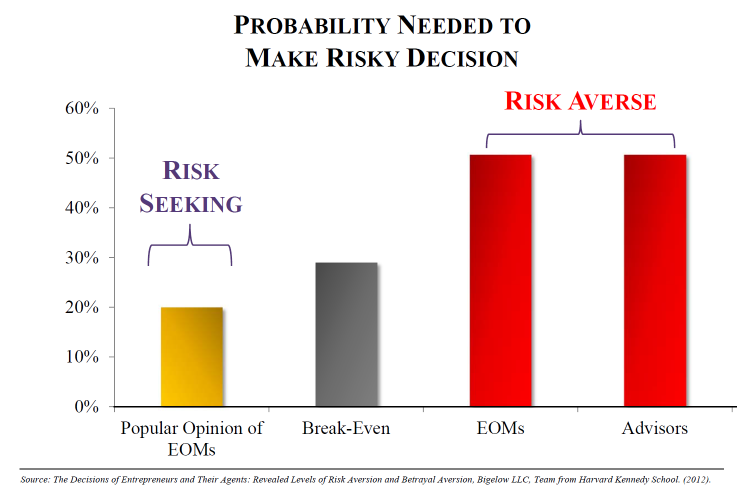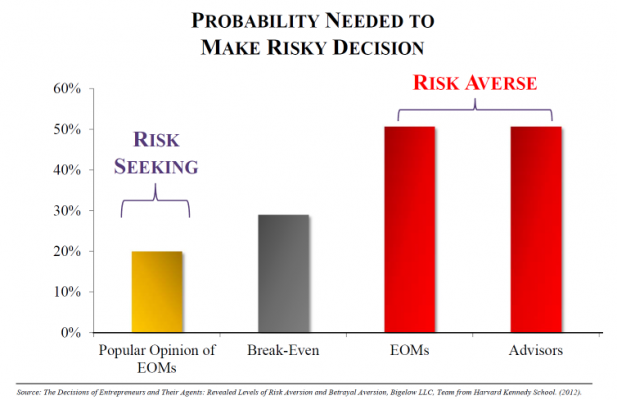In order to further our understanding on the practical applications of the theoretical foundations of finance and psychology as they apply to Entrepreneur Owner-Managers (EOMs), we formed a team with Harvard’s Kennedy School to research the question. The research was designed to help determine the risk preferences of EOMs in comparison to their Expert Advisors. As part of the study, participants were asked to answer questions posed by case scenarios as either a Principal (Owner of your business) or as an Agent (Advisor on behalf of your Principal). The questions were part of an on-line business problem, and nominal cash payoffs were offered and paid (for comparison purposes to other research we used that tool).
Here are three results from the research:
1. Both EOMs and their Expert Advisors are far too risk averse when attempting to make a decision for an optimal outcome. The fair break-even probability was 0.29 in the research question. The mean response was 0.507. This means that in the aggregate and on average, respondents required a 51% probability to go forward with an investment when they only needed a 29% probability to break even. Counter-intuitively, this was equally true of both EOMs and Advisors. This preliminary finding is in conflict with the general population’s view of EOMs as “risk takers.” It is in accord with our own empirical hypothesis—that seasoned, successful EOMs are not willing to take more risk, they simply see and evaluate risk differently in their specific domain.

2. Incredibly, EOMs and their Expert Advisors behaved no differently in this research. There was no statistical difference in Principals answering for themselves than for Advisors acting on their behalf. Initially you might say that’s good, the Advisors answers correlate well with the EOMs—a victory for good representation. However, it also suggests Advisors are not “coldly objective” on behalf of their clients, and appear to be subject to the same decision making biases as Principals. This is troubling, and has broad implications for where Expert Advisors are most effective.
3. The results showed strong evidence of “betrayal aversion.” In this study, on average, respondents focused more on being betrayed (a qualitative bias) and less on quantitative reasoning. We wonder if we need to become more cognizant of how we feel qualitatively— and get over it, keeping our eye on the quantitative question. This is the only research of its kind measuring risk tolerance in Entrepreneur Owner-Managers and their Expert Advisors that we are aware of. Full results can be found here. (https://bigelowllc.com/wp-content/uploads/2014/07/harvard-kennedy-zechauser-study.pdf)

